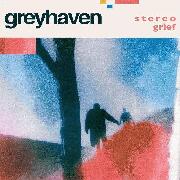|
Staff
Reviews 40
Soundoffs 34
Album Ratings 3281
Objectivity 68%
Last Active 12-13-22 11:46 pm
Joined 01-15-10
Review Comments 3,455
| Ashcrash's 2024 WALL O TEXT
whoo boy here we go it's the big one. top 50 albums of 2024 w/ blurbs let's GET IT | | 52 |  | The Heist Revenge
For Losers Craving Love
One plug first: I released my debut album in September. It's a home-recorded rock opera of sorts, every part played or programmed by yours truly. Loosely structured like the 2000 anime series FLCL (which you needn't be familiar with, though it'd contextualize some more abstract lines), each of its six songs adopt the viewpoint of a distinct character in conversation with its protagonist. It's not linear, per se, just a thematic interrogation of what "growing up" means, full of bad advice, rebellious angst, and an emphasized understanding that most of adulthood is kind of a sham. Thanks again to Sunnyvale for reviewing it positively upon release, but I sure hope it was worth more of y'alls time than uhhhhh let's check...3 ratings? damn. hit a brother up! FFO: The Hotelier, Empty Country/Cymbals Eat Guitars, The Dismemberment Plan, whatever 90s indie rock you publicly love, and whatever 00s pop punk you secretly love. https://theheistrevenge.bandcamp.com/album/for-losers-craving-love | | 51 |  | Greyhaven
Stereo Grief
EP of the Year: Whether cranked from a makeshift basement venue or a late night television stage, 2024 has been a remarkable year for heavy music, and a certain Louisville-based metal outfit with a penchant for deep-fried dissonance dominated that resurgence. Despite their many traits in common, that breakout band in question is not Greyhaven (gg, Knocked Loose), but I’d argue it should be: the not-quite-metalcore-or-post-hardcore quartet has been on a roll lately. Their latest EP, Stereo Grief, is a hasty, cutthroat barrage of hooks and uppercuts on par with just about any of the full-length riff-fests you’ll read about below. Five standard-length tracks isn’t a lot to work with—newcomers can consider it a sample platter, while my already-converted soul likens it to a second helping of angsty dessert. If you enjoy blowing out your speakers with a dash of Southern twang and a vocalist who effortlessly flip-flops between virile cleans and sizzling screams, then voila and bon appétit! | | 50 |  | As Living Arrows
Hope and Ruin
“Limits breed creativity” is one of those adages I intuitively understand to be true, but it doesn’t necessarily suggest that an artist ought to book themselves into a corner and scramble to achieve something before a hasty deadline. Unfortunately, that's where As Living Arrows found themselves recording Hope and Ruin—all its material originated from a ten-day stint of writing followed by six days of tracking takes. While it’s not without the occasional oopsie—vocalist/guitarist Thomas Wagstaff notes he’d essentially blown out his voice by the end of the recording sessions—As Living Arrows’ noodling, screamo DNA predisposes them towards unpolished production and embracing the flaws of minimally-doctored performances. It’s also a tremendous benefit that these guys were already seasoned musicians—their experience allowed them to not just string together loose ends, but efficiently sequence them for maximum “wow” mileage, that most autumnal of templates chucked my way at the perfect time. | | 49 |  | Hoplites
Παραμαινομένη
Chinese national Liu Zhenyang relocated to Paris in 2022 to study linguistics, and his fascination with ancient Greek formed the impetus for Hoplites, the most notable of his many one-man metal side gigs. Easy to see why: Paramainoméni’s liner notes are repetitive, seemingly incomplete, and bellowed with such animalistic vigor they’d be borderline incomprehensible even to a lifelong Hellenistic scholar’s ears. There's little mythological reverence here, by the way: Liu's hyperfixation mainly uses Hoplites as a vessel for the sound of the dead-ish tongue alone, garbled and mutilated under a dizzying maelstrom of thrash metal riffs. Detours run abundant; we've got atonal drone passages, avant-garde jazz fits, mid-song jump scares, false endings, and more sax breakdowns than I’ve cared to count. This music is absurd, but credit where it’s due: it’s one thing to conceive of all this—it’s another to write cogent songs as discombobulating and badass as the powerhouses Paramainoméni packs. | | 48 |  | Beyonce
Cowboy Carter
Plenty of critics have asked if Beyoncé's "country" album is "country enough" in a condescending light, but totaling 78 minutes of material, it’s neither surprising nor irredeemable that Cowboy Carter's concept is tighter than its execution. You can’t demarcate where the blues end and the country begins, where the gospel turns to non-denominational soul, where the bar stomping rhythms evolve to electronic beats and so on, nor should you try to: this project exists to remind us that music is a shared cultural continuum and needn’t be regimented or segregated the way it once was. The star-studded tracklist and Wild West word association playfully dull Cowboy Carter's commentary into more accessible barbs, using all manner of universal, human stories—of parenthood, of partying, of saddling up—to make its call for genre-averse unity heard. Only the staunchest of contrarians would suggest Beyoncé isn’t having a world of fun in the process, and I’d much rather ride with her than them. | | 47 |  | Tenue
Arcos, bóvedas, pórticos
I first encountered Tenue on their 2021 LP, Territorios, a one-song, anti-authoritarian, neo-crust manifesto that sounded as fiery as any revolutionary doctrine ought to. They would know: as recently as 50 years ago, the Franco regime demanded everyone in Spanish territory learn Castilian and cracked down on the freedoms of cultural minorities. Fast forward, and fascism's back on tap. Tenue—Galician speakers who would've been in for a world of hurt back then—capitalize timely with the worldwide writing on the wall. Their guiding principles still hold water, but on Arcos..., their lyrical angles have evolved—less didactic sloganeering, greater emphasis on poetry. That pursuit of autonomy meshes well with the punk ideal of rebellious community—when the overlords of your culture seem insurmountable, remember they aren’t, but it takes a determined deluge from all fronts to unseat them. In the meantime, this record is another solid outlet for righteous frustration. | | 46 |  | Foxing
Foxing
The historical statue on Foxing's cover survived with minimal oxidation only because it was promptly buried—an apt parallel to how this band, the emo revival’s most restless explorers, lay defeated even if their glory seems well-preserved. Name me a more decorated, adventurous act from their scene and I’ll call you a liar: here at LP #5, successfully reinventing the wheel for the fourth time, a medal is chump change compared to a moment’s reprieve. Exhibit 4.1: observe how the tight pop songcraft of predecessor Draw Down The Moon evaporates in favor of Foxing’s sprawling, nocturnal cynicism while the band’s comfort with electronics doesn’t just remain, but expands until it bursts. Their undying feel for twisted, danceable grooves make the avalanche of depression a little easier to swallow, and the sheer artistic magnificence implies it’s still worth it, but heed their warning: some victories ring a little more Pyrrhic than others. | | 45 |  | yonige
Empire
On a scale whose ends are "well-adjusted individual" and "Flugmorph," I'd like to think I'm decently approachable, but a quick glimpse at my music library will reveal the disproportionate truth: my weeb phase never fully ended. Whether it's directly tied to anisong or not, I retain a fondness for Japanese rock, and I've been waiting for one of the country's leading 2020s power pop acts—The Peggies, Regal Lily, Hitsujibungaku, Homecomings, ANYONE—to break through the "singles band" designation and write a whole album's worth of gold. Enter yonige: where the aforementioned artists cling onto the “indie” designation through vibes only, this act, recently departed from Warner Bros, channels the scene's best attributes without a single misstep. Empire is J-whatever's Neutral Good of the moment, and yonige’s contemporaries failing to string together an album this hook-packed, this pristine, this high in replay value, proves hit material is far from an infinite resource. (thanks, johnny) | | 44 |  | Mdou Moctar
Funeral for Justice
Mdou Moctar isn’t the first desert blues breakthrough to take the Western world by storm, but he might be the genre’s loudest. Compared to the Tuareg musicians before him—Tinariwen, Bombino—Moctar’s “Hendrix of the Sahara” nickname doesn’t feel solely justified on behalf of his freewheeling electric guitar fireworks: his music is wrapped in rebellious vindication, lamenting ongoing complications of a grossly unjust history. In 2023, his home country of Niger underwent its first military coup in over a dozen years, keeping his band’s ability to tour in limbo. Compound that with continued economic exploitation and corruption, and Moctar’s familiar rattle has reason to be even more urgent than usual. Funeral for Justice pleads for peace and sounds ready for war, and since virtually no one outside Niger speaks Tamasheq, Moctar makes that tension felt through his psychedelic din. His continued success the world over is no coincidence: indignation has a way of making language trivial. | | 43 |  | Nick Cave and The Bad Seeds
Wild God
Nick Cave is more than qualified to talk about grief: the now 67-year-old alternative rock provocateur rebuilt his public image following the death of two children and a former collaborator over the past decade. Sorrow and solemnity have defined all of his musical works in that time frame, and his once roaring backing band, The Bad Seeds, weren’t absent, but peripheral, ascribing a liturgical heaviness through inconspicuous detail. 2016's Skeleton Tree and 2019's Ghosteen were oppressively sad, disinterested in romanticizing Cave's loss or shock. Since then, the guy has acquiesced his new lot in life: preaching, pseudo-religiously, about how to reclaim a sense of joy that’s been snatched away from you. Wild God is just as rousing as his narrower interrogations of grief, but for the first time in a while, it’s eminently listenable, too, a warm, sometimes deliberately cheesy hug of gospel-infused chamber rock intended to be passed forward instead of peaked at behind the curtain. | | 42 |  | Joey Valence and Brae
No Hands
Digging Joey Valence and Brae's music is something akin to loving cilantro: the herb adds a pleasant little kick to any number of culinary traditions, unless, that is, it tastes like soap and smells like rotting matter to you. You’re just as genetically predisposed to admire or loathe the 90s man-children Valence & Brae represent: if you were there for the tail end of boom bap’s halcyon days but weren’t old and/or Black enough to feel emotionally connected to its cultural DNA, NO HANDS was made by and for goofballs like you, the sort of record that sidesteps the obligation to make a statement because it lives and dies by its own inside joke-first terms. If you're "in," the fun is uniformly contagious—NO HANDS’ twelve cuts transplant the Beastie Boys’ loud-mouthed rapport over techno rave beats and goofy MIDI loops in service of a half hour of barely-suppressed snickering. You already know whether or not you’ll dig it. Suit yourself if it just isn’t for you. Me? I’mma eat that shit. | | 41 |  | Allt
From the New World
Nobel Prizes are synonymous with peacemakers and paradigm-shifters, but their namesake comes from a man who developed patents for explosives and transformed an ironworks in Karlskoga, Sweden—Allt's hometown—into the headquarters of world-renowned munitions manufacturer, Bofors. The upstart metalcore outfit surely knew about this history, and From the New World is aptly preoccupied with destruction inadvertently encouraged under the guise of science. The album presupposes an alternate timeline of nuclear winter, where the band's flavor of progressive metalcore isn't the focus so much as their thematic commitment and a massive, booming production glow-up. For all the short-sighted leadership on our planet since 1945, our one collective trophy as a species is not wantonly resorting to atomic warfare, but Allt and the rest of Karlskoga know a thing or two about how easily a legacy can be overridden to self-serving ends. Their warning shot packs a mighty wallop. | | 40 |  | Kendrick Lamar
GNX
A large part of what made Kendrick and Drake's spring beef so compelling (beyond the confirmation bias of watching an entitled creep fall from grace) was how Kenny’s rebuttals cherry-picked flaw from feature. Broader conversations about blackness, masculinity, and fatherhood played second fiddle to ensuring Drake’s cultural presence diminished, leaving a bitter aftertaste in some mouths that GNX mainly tiptoes around. Lamar’s career-long self-evaluations of fame remain present, but he unwinds those threads in finicky spurts instead of dedicated inquiry, deflecting from Mr. Morale’s counseled grandiosity by shooting layups. I won’t lie and say that’s not a tad frustrating, but I also can’t ignore my gut fascination with how Kendrick’s sassy affectations drive lean arrangements to entertaining outcomes. Better yet, GNX primes Lamar to shadowbox his insecurities and naysayers in the margins instead of the spotlight—a place this album proves he’s just as comfy and no less captivating. | | 39 |  | Adrianne Lenker
Bright Future
Bright Future is 100% devoted to capturing a moment and living with whatever comes of it. I mean that in theme to an extent, but the anti-perfectionist agenda is even more evident in Adrianne Lenker and Phil Weinrobe’s production process, capturing songs in single takes and not playing back or overdubbing anything until long after the writer’s cohorts had left the room. She ruminates about love and connection in senses broad and needle-thin, the profundity of these feather-light songs not preached from any rustic lectern but revealed through omniscience as she beckons forth understated morsels of brilliant songwriting. Her dulcet voice and penchant for sticky melodies anchor the record long before it ever gets too lost in the weeds, but more crucially, Bright Future is a testament to folk’s persevering sentimentality: when you’re pursuing your passion alongside people you cherish, maybe nothing else really matters. | | 38 |  | Blood Incantation
Absolute Elsewhere
Blood Incantation are among death metal’s latest wave of giddy descendants, racking up accolades from both metal-exclusive publications and nominally pedestrian ones. Whether you perceive that as a boon or a burden says more about you than it does them; like their forefathers, this quartet is only following their instincts. Absolute Elsewhere is their first LP since going on an unanticipated ambient detour, and it re-contextualizes Timewave Zero's left turn by sliding its keys and synths into environments friendlier to the band’s origins. In other words, this is Blood Incantation Goes Progressive Rock: The Extravaganza. There’s also a story in here if you choose to read into it—time loops, the subconscious, DEEP SPACE and whatnot—though in any case, it’s just as valid to forgo skimming the physics lesson-via-ontology thesis and borrow from Blood Incantation what they took from their own heroes: the realization that anyone who can hold a tune can weave any world they so desire. | | 37 |  | Poppy
Negative Spaces
To anyone who hasn’t followed Poppy for years, her whole shtick might reek of artificiality. It’d be easy (and not entirely inaccurate) to parrot such a claim, as she rose to prominence through viral satire and piggybacked that success into a music career. Once she’d ousted her manipulative business partner in 2019, she even brought metal influences into her bubblegum pop arsenal; where 2020's I Disagree beckoned for listeners to gape at the contrast of ditsy hooks and brutal breakdowns, Negative Spaces merges metal’s angst with pop’s stone-cold determination without relying on that album's gimmicky contrast. This time it’s also framed like “the one where Poppy lets her guard down and gets real with us,” but what that really keys in on is that Poppy inhabiting a persona no longer matters—her current musical actions don’t hinge on how much you buy into her acting, and her new creative collaborator, ex-BMTH producer Jordan Fish, is a no-brainer complement to her post-nu metal grit. | | 36 |  | Wunderhorse
Midas
What does “rock ‘n’ roll is dead” mean to you? A dismissal of all the guitar-centric music to came out after classic rock’s commercial heyday? A resigned acknowledgment that the rock star no longer holds any cultural sway? Or did the genre just reach a saturation point? For better or worse, the most prevalent strain of rock from my 90s-to-00s childhood—grungy guitar tones, simple melodies, polished production that tries its hardest to sound unpolished—that stuff’s done for, reduced to a descriptor as illuminating of its recipient as it is its suggester: “old people music.” Your appreciation of Midas will thus rely on how much you value a sly copycat, but it helps that unlike the shoddiest of revivalists or cover bands, Wunderhorse actually write great hooks. They don't reappraise the era that so clearly inspired them, but weaving their personal tribulations through (post-)grunge's staple templates breathes more life into the genre than it does suck oxygen out of their young lungs. | | 35 |  | Julie Christmas
Ridiculous and Full of Blood
I can’t think of anyone else on Earth who sounds like Julie Christmas—Björk backed by noise rock, maybe—but any analogies springing to mind register as flimsy at best. You’ll know her when you hear her, and in turn, you’ll know after a sampling if you’ll be able to stomach a full album of her elongated vowel sounds and undulating pitches. And those screams? Let’s just say she puts the “ache” in “trachea.” Surrender yourself to the eccentricities, though, and Ridiculous and Full of Blood is legitimately spine-tingling; compared to contemporaries like Chelsea Wolfe, “darkness” isn’t the endgame so much as paranoia. The mix is shrill as a jackhammer and blunt as the concrete it pounds to smithereens, designed to keep listeners on edge with a sepia-tinged, widescreen flair for the dramatic. Whether you dig Ridiculous and Full of Blood for its gorily dolled up theatrics or its unchained, heart-thumping drive, Christmas and company claim the most honest advertising of 2024. | | 34 |  | MJ Lenderman
Manning Fireworks
MJ Lenderman knows one man’s crushing defeat is another’s silliest punchline, and Manning Fireworks revels in portraits of bummed out guys coping with heartbreak in ways that feel pitiful in the moment and hilarious in hindsight. The constant is grace—the singer-songwriter doesn’t shame his ne’er-do-wells so much as depict their habits and coping mechanisms as they are: superficial, indulgent, and disproportionately problematic to anybody one step removed from the self-induced mess. His drives the point home in as few syllables as possible, adding extra sting to his bluntest assessments and clever curves to those stretching across whole verses. If you’re not much of a lyrics person, the album admittedly has less to offer, but its restraint still gives it identity, penduluming between leisurely Americana arrangements and lethargic slacker rock. It's a writer's treasure trove—peep if you too appreciate the humanity culled by pulling back the curtain on lives voluntarily falling apart. | | 33 |  | sleepmakeswaves
It's Here, But I Have No Names For It
Big, loud, synth-assisted (mostly)-instrumental post-rock that leans more towards the rock than the post. Click to read my full review of this one. | | 32 |  | Oranssi Pazuzu
Muuntautuja
Sometimes a superlative experience is all I’m looking for. An aborted spin of Oranssi Pazuzu's 2020 release Mestarin kynsi proved the band's psyched out black metal cauldron a bit Too Crazy. When Muuntautuja began receiving heaps of praise for the very same attributes I once recoiled away from, I almost passed on it altogether. But I caved, and to my shock, it largely absconds from riffing, infiltrating your speakers like a shadow with a mind of its own. Its eight tracks abide by industrial backbones and ambience-first pragmatism, scored like a supernatural horror soundtrack. At points, the rhythms veer on bewitched dance music, the album’s first half holding its oppressive abstraction at arm’s length through freakish, seductive grooves. And then the feared, brickwalled free-fall of “Valotus” hits: its closing passage is the single most harrowing musical movement I’ve heard in 2024, a rewarding payoff for letting Oranssi Pazuzu bring their mucky dark magic back within earshot. | | 31 |  | Brittany Howard
What Now
A meditation bell rings between nearly every track of What Now. I could interpret its inclusion rhetorically, but its meaning is secondary to its function: unlike Brittany Howard’s solo debut, Jaime, her latest LP is full of R&B sketches, not stories. The Alabama Shakes founder spent Jaime in memoir, reflecting on queerhood, race, poverty, and faith as they applied to her just past the cusp of her 30s. Her follow-up is less overtly autobiographical, though her sentiments—rejection, loss, rebirth—crystalize in the context of a recent divorce and seek to re-direct heartbreak to joy. The interstitial bell keeps everything lucid, unbound to a strict linear narrative and awash with the playful obfuscation of half-forgotten dreams. She loses nothing by retreating from the frame and toying with lens depth: unbridled confidence isn’t always a blessing, but Howard is no creative fluke, and the absence of a titular question mark only confirms her confidence. | | 30 |  | Magdalena Bay
Imaginal Disk
I don’t know how kind an era defined by AI will be to Magdalena Bay’s open-ended sci-fi, but the two appear bound to remain in indecisive, intriguing discourse for years to come. Zoom in and Imaginal Disk follows a girl’s struggle with self-image after a persuasive sales pitch to “upgrade herself” via CD software goes awry. The details are both extremely open to interpretation and ultimately beside the point: the album makes not-so-distant fantasy out of the bombardment of advertising and peer pressure people have faced since the dawn of consumer societies. That it sounds ultra slick, uncannily, even, is a tremendous perk: Mica Tenenbaum and Matt Lewin went for broke on the immersive, "so futuristic it's retro" mix. It's all still a tad saccharine—who the fuck still uses compact disks, anyway?—but candy-coating helps Imaginal Disk's cynical phantasmagoria go down with a little more nuance and a lot more depth than its specific fanfare might have you assume. | | 29 |  | Kamasi Washington
Fearless Movement
Kamasi Washington doesn’t do small. I’m sure he could if he tried, but the saxophonist’s tendencies veer maximalist by nature and that approach has yet to pose a problem; it tracks that only someone who envisions the future of jazz as boundary-averse and historically reverent would ask for hours of space to toe the line of classical composure and cutting-edge creativity. He undeniably has the chops to match: you feel Washington’s compositions with every fiber of your being, and what Fearless Movement's 86 minutes (compare with The Epic's 3 hours) sacrifices on the clock, it regains in breadth. Washington incorporates more synth work than ever before and goes a little trigger-happy with guest features (André 3000, George Clinton, rappers you don't know), but each digression finds grounding in the album’s final leg, foundational jams enhancing the early experiments and vice versa. The verdict is as obvious as ever: Kamasi Washington doesn’t do small, and we’re all better off for it. | | 28 |  | AURORA (NOR)
What Happened to the Heart
There are really two types of pop star: performers who rest at nothing to stand atop the charts, and artists who appreciate the craft of popular music without striving to be its leading image. Up until recently, Aurora Aksnes toed the line between the two, maintaining a disarming, amiable demeanor while bearing her heart in hook after hook to widespread acclaim. With What Happened to the Heart?, she turns inward, no longer beaming dazzling refrains to the heavens every two minutes but chanting mantras of introspection. A select handful of glistening, conventional Europop bangers still dot the tracklist, but once you press through the album's hesitant-to-burst opening run, it crouches in an igloo, blizzard raging outside and leaving baggage as the singer’s only tinder. It shouldn’t be that rare for someone followed by a permanent spotlight to acknowledge their own shadow—perhaps even dance with it—but until that becomes a norm, What Happened to the Heart? ups the ante. | | 27 |  | Metz
Up On Gravity Hill
METZ have never been ones to stray from tradition, and they’ve never really needed to, either. Raw, untrammeled energy flows from their limbs naturally, and with each release, the Canadian post-post-punk trio subtly tightens the consistency of their songwriting. Their earliest material was sketchier and looser, rough drafts of the electric watercolors they now let run, streaking the angular (there it is, I said the thing) riffs with off-grey shades to intentionally sully the final image. Up on Gravity Hill’s brief, 34-minute runtime instinctively clocks as a good deal longer, and I mean that positively: it provides the unresolved harmonic tension METZ concoct so well with a slim physique that doesn’t stick around long enough to lose the plot. It’s the platonic ideal for anyone carrying noise rock’s torch in 2024. If this record does end up being their swan song, they departed how they entered: making a mighty enjoyable ruckus through the underground. | | 26 |  | Geordie Greep
The New Sound
Geordie Greep’s standalone debut followed on the heels of Black Midi's indefinite hiatus, but The New Sound’s title is sort of a misnomer: the album largely inhabits the more-is-more niche carved out by his prior band's zany trilogy and it even features a few cuts that graced setlists prior to their dissolution. The greatest surprise? Greep’s post-punk and progressive rock foundations have morphed into a gratuitous helping of Tropicália-infused jazz fusion wankery—think Steely Dan meets Frank Zappa meets 4chan meets Broadway—all of it inflated to surreal extremes by the composer’s inimitable, auctioneering cadence. Separated from any subsequent PR conundrum, its parodies of self-fellating, deeply pathetic posers leaks shades of a deeper social tragedy within each song's individual comedy, offering an imposing, gargantuan character study about chivalry’s inevitable dead ends. For those willing to celebrate Greep’s peerless ability to perform, The New Sound's a stunner. | | 25 |  | The Cure
Songs of a Lost World
My only exposure to The Cure is some casual familiarity with their hit singles and a few precursory spins of Pornography and Disintegration. As such, I can’t attest to any mid-career backslide, nor have I been inclined to scour the depths of their discography yet. Still, if those aforementioned opuses poised The Cure as leaders of new wave, Songs of a Lost World proves they can fashionably wear an old hat. Robert Smith, voice aged like the finest wine, second-guesses his time management throughout, succumbing to existential paralysis as it dawns on him that his (and his loved ones’, and everyone’s) days are numbered. That’s been his calling card all along, but it rings more poignant after sixteen years removed from the studio, intrinsically enhancing a calculated, safe return into the stuff of generation-defying legend. Songs of a Lost World is everything The Cure do best, and they pick up the unheeded mantle like they never set it down in the first place. | | 24 |  | Remi Wolf
Big Ideas
“Live fast, die hard” isn’t great advice for sustaining a career in music, but it can yield a beneficial sort of escapism for audiences who don’t know firsthand what constant temptations are thrust upon the young and vulnerable. Remi Wolf spends most of Big Ideas alternating between frolicking in that excess and blushing away from the camera in regret. When she’s high and mighty, it’s the most delightful funk pop you’ll hear from 2024. Once her party inevitably gets pooped, she adopts a more complex voice and the songs flash influences far outside the realm of disco revival. There are glitzy parades, baroque ceremonies, rebellious bangers, all attuned to whatever propping Wolf requires to convey the tug-of-war between feeling at the top of the world and wanting to get down and dirty with the rest of humanity for a while. Big Ideas isn’t the boldest or weirdest or “most 2024” pop experience out there, but it nonetheless became my favorite of this year’s chart-aspiring sensations. | | 23 |  | Tapir!
The Pilgrim, Their God and The King Of My Decrepit Mountain
Each section of Tapir's debut LP comprises an arc of a larger story about a voyager who sets out on a quest to affirm their faith only to have it eroded at every turn. The fantasy isn’t as distant as it first appears; if Tapir!’s extensive metaphor for the incompatibility of capitalism and fulfillment doesn’t do the trick for you, maybe their spellbinding songwriting will. Part of their formula relies on the audience’s awareness of folk clichés: The Pilgrim evokes the idyllic scenery of lightly windswept pastures and clear skies in its near-entirety, and its production is always in service of that. Thin, sparse drum textures force the band’s guitar passages to double as rhythmic devices. Ike Gray’s verbiage is full of gleeful whimsy and poetic astonishment, attributes almost as beneficial as the simply mesmerizing range and timbre with which he whistles these airy spirituals-of-sorts along. It’s true, how that advice goes: sometimes you gotta get lost in order to find yourself. | | 22 |  | Lupe Fiasco
Samurai
It sounds absurd on paper: Lupe Fiasco, decorated MC coasting through his mid-to-late career on an earned reputation, released a tribute to the late, troubled pop sensation Amy Winehouse? But yeah, that’s Samurai—a 31-minute collage of lax, jazzy beats, gymnastic wordplay, and razor-sharp braggadocio that turns evasive in its closing run, trusting we know full well how her story ends. If anyone were tasked to take that prompt and mold a literary masterwork out of it, Lupe stands a better chance than most rappers: he spends Samurai selectively aligning with the singer to showboat and dissociating when it comes time to allude to her premature demise. His composed bars hit the ear like stream-of-consciousness freestyles, pausing at odd intervals and linking phrases through homophone-heavy sleight of hand. He’s loquacious early on, restrained and reflective further in. Let the soul-searching flow, I say: it’s just as worthy of exegesis as the intended requiem. | | 21 |  | Night Verses
Every Sound Has a Color...
Current music industry conditions made it more profitable for Night Verses to release Every Sound in two halves, with Pt. I dropping in the fall of 2023 and Pt. II following up this past spring. Rest assured the full fourteen-track experience is worth the wait, boasting what might just be modern progressive metal’s finest marriage of technical complexity, stellar production, and melodic accessibility. All three members are irreplaceable facets of the band’s identity: guitarist Nick DePirro’s nimble finger work and intergalactic effects pedals combine for a singularly futuristic tone, bassist Reilly Herrera drives some of the grooviest bass lines in the genre, and drummer Aric Improta is nothing short of a virtuoso. Hearing these three dudes play—or better yet, watching them play—fires off all the dopamine a brain can process at any given time. I feel like a child discovering sugar when I listen to Night Verses, and I won’t apologize for whatever behavior I exhibit on such a high. | | 20 |  | Nala Sinephro
Endlessness
As is often the case with my fave stuff in Endlessness' vein of ambient jazz, Nala Sinephro’s latest album is transportive on a passive listen and transfixing on an attentive one. Its ten tracks—all called “Continuum” with a sequentially numbered subtitle—revolve around a repetitious synth arpeggio, underpinning each composition while she and a prized throng of her adoptive city’s best and brightest swirl around her keys and harp passages. If predecessor Space 1.8 was akin to achieving a calm transcending space-time, Endlessness feels like becoming one with it, inhabiting a celestial enormity through the accumulation of countless minute subtleties. In turn, it’s emotionally fluid, breezing through draperies of bursting nebulae and swarms of languishing unrest, terminal extremities at times stretched to such infinity it’s impossible to delineate its center of gravity from its desire to float free. Whether used as BGM or analyzed, it's guaranteed to whisk you away somewhere wonderful. | | 19 |  | Alcest
Les Chants de L'Aurore
Fantasy and metal’s past walk hand in hand: the genre’s ugliness often begets a fascination with realms beyond our own. Alcest’s Neige once used a blueprint of black metal and shoegaze to artistically recreate otherworldly visions he’d experienced as a child. In turn, he essentially became the earliest progenitor of “blackgaze,” a musical movement that's since superseded his initial innovation. Les Chants de l’Aurore backtracks to its benefit, revisiting the melodic catharsis of 2016’s Kodama and 2014’s Shelter to create a hybrid within a hybrid; it's refreshed from a dewy morning glow, raised aloft by scores of angelic background vocals, hypnotic leads, and a seemingly bottomless helping of codas, circling back for more triumph right as you think each song is beginning to wind to a close. Coming from a longtime fan, this isn’t necessarily Alcest’s most pivotal work, but it may go down as the project’s easiest entry point for those yet to dip their toes into blackgaze’s marsh. | | 18 |  | The Messthetics and James Brandon Lewis
The Messthetics and James Brandon Lewis
If you’re any sort of jazz connoisseur, the first thing that’ll hit you about The Messthetics and James Brandon Lewis’ collaborative album is its aversion to all things currently in vogue about the genre’s latest resurgence. There are no new age-reminiscent atmospheres here. Their output sounds like the sum of its parts would suggest; Lewis’ saxophone wails euphoric hard bop through an erratic, avant-garde lens while The Messthetics—a fusion trio founded by guitarist Anthony Pirog and ex-Fugazi rhythm section Brendan Canty and Joe Lally—bring a slew of edgy, melodic licks to the table. The group's chameleon skin veils the simplicity of their agenda: hang out, write killer parts, and leave space for some on-the-spot showmanship. It’s as old school as it gets, and when both the hooks and the soloing are as feisty as they are here, they leave no room for doubt: The Messthetics and Lewis refuse to rest on their laurels. With any luck, this won’t be their final joint effort, either. | | 17 |  | Little Kid
A Million Easy Payments
Better than mere daydreamy vibes, Little Kid provide precisely enough detail to make their humble indie folk/rock musings feel universal and private at the same time. Kenny Boothby’s penmanship is informed by the ghosts of a distinctly Standard American past, rife with allusions to ingrained evangelicalism and a desire to understand its present implications. You’ll want his words handy when you first enter—they aren't always fully intelligible to the ear alone—but trust they’re worth the additional attention. With him through every phrase, the band embody a warmth so snug it almost wraps back around to chilling you. That paradoxical awe I felt on my first spin of highlight “Bad Energy” could occur alongside any tune from A Million Easy Payments given the right setting. Do yourself a favor and save this for a time you find yourself trembling, frozen, and vulnerable to a volume on the softer side of the dial; the wisest voices know to only speak when the room is hushed for all to hear. | | 16 |  | ERRA
Cure
I was new to ERRA when they rebooted their career with a daring and technical self-titled record in 2021, but they instantly won me over while flinging open the gates to vie for modern metalcore's creative crown. If they don’t snatch the victory spoils on CURE, it’s only because they no longer view their evolution by those competitive terms. This album’s tunes are leagues more accessible than its predecessor's, but the band isn’t chasing pop appeal either, per se; they simply decided it was time to close the door on complexity for complexity’s sake. Rather than exacerbate a black and white division, Daniel Braunstein’s thundering production dirties the catchier cuts and Jesse Cash’s best-in-class cleans smooth out the pricklier ones. Embracing yin and yang is a natural progression for ERRA, further elevating their most obvious strengths (dual vocal interplay, semitonal chord progressions) to showboat their ace in the hole: an addicting knack for neat, sticky refrains. | | 15 |  | Dillom
Por cesárea
Like the impish figure adorning its cover, Por cesárea inextricably fuses the cute and the corrupted. Argentine trap breakout Dylan Léon Masa—alias Dillom—possesses a congested tenor and teeters between uttering co-dependent smarm and engaging in hedonistic abandon. The grisliest details of this record are manufactured, but its impetus is biographical, and it describes what Masa's world could’ve become if things went even more awry; its detestable protagonist hails from an abusive household, and his imprinted, overbearing understanding of love turns increasingly sour as he’s exposed to drugs and debauchery. It's macabre—comparisons to Eminem aren’t completely unfounded—but Dillom’s shock value never feels glorified, and unlike Mathers’ darting tongue, Masa’s biggest virtue is his compact storytelling. For a kid with such a fluky path out of destitution, the sonic breadth and narrative brevity of Por cesárea make it some of the most artistically crooked rap of the 2020s thus far. | | 14 |  | Vampire Weekend
Only God Was Above Us
Love it or leave it, privilege runs through Vampire Weekend’s blood. The indie darlings formed at an Ivy League school, and even as frontman Ezra Koenig dissected the pretentious opulence associated with coastal elite old money, enjoying the fruits of easy labor made the band a harder sell to shrewder minds. Though the group has since relocated to L.A., the austere architecture and orderly chaos of their former home, NYC, permeates every inch of Only God; guitars screech like grinding subway car brakes. The melodies—at times jaunty, others downcast—adopt an air of regal elegance while their jazzy proportions get mutilated by funhouse mirrors. Koenig, the album’s voice of reason, ruminates on classism and the passing of time like a museum docent illuminating his tour group about his favorite dead golden age. Ironically, it's rejuvenating, bankrolling a literate, audacious brand of lounge pop that feels as assured of itself as it does unsettled by its carnivalesque conclusions. | | 13 |  | Chat Pile
Cool World
When Chat Pile escaped containment two years ago with their sludgy debut LP, God’s Country, the noise rock quartet found themselves applauded by audiences as diverse as insular metalhead communities and hip indie publications. The viscera endearing to the former group marched in lockstep with the activism valuable to the latter: that album made a mockery of late-stage capitalism by plastering its most grotesque atrocities front and center, puppeteering a psychological soundtrack fixated on denouncing American excess and its twin cousin, negligence. For better or worse, the formula hasn’t really changed on their follow-up, Cool World. The biggest shift is a subtle one: this album's narratives aren’t as reliant on blunt clarity, instead letting fight-or-flight responses lead the parade through dystopia. Whether they toy with cryptic PTSD or holler anti-colonial scorn, Chat Pile remain in a commendable league of their own, presenting heady societal ills as carnal nightmares. | | 12 |  | Nubiyan Twist
Find Your Flame
Collaboration has been in Nubiyan Twist’s wheelhouse for a while: this London-based jazz collective now counts nine integral full-timers among their numbers, with guitarist Tom Excell’s “bandleading” duties largely a ceremonial title. The ensemble still shoehorns in guests on Find Your Flame, but their sound is amplified tenfold by Aziza Jaye’s ascension to the role of permanent vocalist. Rather than solely replicating the basics of American jazz or Afrobeat, these players whirl their inspirations around until they deform into a cohesive, worldly amalgamation. This is jazz to groove to, the genre’s most philosophical and abstract intentions cast aside for a direct passage to the masses’ hearts.That’s not to say Nubiyan Twist dumbed down their interplay; their music is just liberatory by design. Find Your Flame sounds like a command, but it’s framed as a suggestion you’ll take without much convincing—sure enough, when they bring the funk, my muscle movement borders on involuntary. | | 11 |  | Wapddi
Like Our Friend Murphy
Peep any part of Like Our Friend Murphy, the second full-length from ascended memester Jihoon Yang under his Wapddi moniker, and you’ll only be able to discern its laptop origins from the dry, quantized drum programming in each song. Despite those rigid confines, Yang bleeds passion through his wistful vocals (those falsetto backups rule), chirpy guitar licks, and enormous post-rock climaxes, careening like a bull on a sugar high. It isn’t all sunshine and rainbows, though: from what I can tell, most tracks deal with betrayed expectations, suffocating surroundings, and the guilt of letting yourself down. This album essentially reprints the introverted malaise of Korean compatriot Parannoul’s breakthrough To See The Next Part of the Dream on a warmer musical page, swapping his overdriven shoegaze in favor of quirky, chiptune-laden emo. Maybe skip “6v6 Part 1”—the guitar lines on there are downright out-of-tune—but the bulk of Like Our Friend Murphy makes doldrums sound like a thrill. | | 10 |  | Friko
Where We've Been, Where We Go from Here
Friko dropped my favorite debut record of 2024. I wish I could chalk that up to some novel trait, but the reality is they simply worked their tails off and wrote wiser songs than their combined years would suggest. The band follows in the footsteps of countless indie operatics, especially the once-beloved, now-disgraced Arcade Fire. Much like how Funeral’s bubbling frustration and pockets of poise captivated a generation twenty years ago, Friko channel a grimy basement show and a royal banquet hall at the same time. And it’s short: just nine tracks covering 36 minutes. You can’t ask for tighter consistency. Friko prove indie rock royalty isn’t something that can be bought and traded; its legacy gets passed down to acts who stage the cart behind the horse and only hit the road once their momentum demands they have to. Where We’ve Been’s tremendous replay value seems to indicate their tipping point, and I can’t wait to witness the second half of this LP’s title unfold in real time. | | 9 |  | Ramper
Solo postres
When the term was first coined in the mid-1990s, “post-rock” signified little beyond shorthand for using conventional rock instruments to unorthodox ends. I still dig the “start soft, then snowball” approach that’s since become synonymous with the genre, but there’s no denying the template’s ubiquity has largely worn itself thin. On Solo postres, Ramper’s second LP, the band seems keen to revisit the blank slate last glimpsed in post-rock’s infancy. Its seven tracks—six of them handily exceeding eight minutes in length—crawl like funeral dirges and float through walls like wandering spirits. Turn the album on while the room is lit, and they collectively convey a potent, mystical despair that borders on otherworldly serenity. Flick off the light switch and the energy could catalyze a séance with your sleep paralysis demon. Their slowcore/Andalusian folk hybrid has been one of my favorite growers of 2024 and I don’t even think I’ve reached my appreciative apex with it yet. | | 8 |  | Tyler, the Creator
Chromakopia
It’s hard to be surprised by Tyler Okonma anymore. Almost a decade removed from one of the boldest quality 180s I’ve ever seen, the rapper/producer/fashion icon seemingly slips a new trade under his belt with every album cycle, his decorated discography doubling as a coming of age narrative. In that regard, Chromakopia is essentially another victory lap for one of showbiz’s most multifaceted masterminds continuing to do what he does best. The catch? This time, the play’s lead actor is having a bit of an episode. Tyler frequently dons and removes the mask of wisdom throughout, indecisively making himself known and hiding behind the convenience of roleplay, embodying messenger and recipient. Thematically, that’ll either squarely be your bag or whoosh right over your head. Musically, it’s more blessing than curse that there’s something for everyone inside his uncanny diary of theatrical R&B and spunky hip-hop. It’s about time we consider his “riffraff to auteur” legacy set in stone. | | 7 |  | Bilmuri
American Motor Sports
When you’ve covered music as long as I have, you begin to develop a sixth sense against that most pernicious of fads: viral internet novelties. A discerning ear can usually sniff this stuff out from miles away; tacky lyrics, surface-level executions of genre traits, and a clinical emphasis on brevity characterize meme music as we know it. All those descriptors ring true for Bilmuri’s AMERICAN MOTOR SPORTS, but it turns out even my skeptical ass will munch on some popcorn so long as it’s [checks notes] cheeky pop country with metalcore breakdowns and sax solos? The album espouses suburbanite heartbreak with a glib temperament that seductively fluctuates between satire and sincerity. That’d be more than enough to earn my interest, but better yet, it inadvertently rolls out the red carpet for a new, accursed hybrid of pop music. Copycats beware: few who open a DAW know how to crank a hog as loud and proud as Johnny Franck. As for its audience? ‘Muri Naysh citizenship is visa-free. | | 6 |  | Frail Body
Artificial Bouquet
Old school screamo and its nearest brethren have long channeled grief as viscerally as any musical movement can. Frail Body’s alteration to the genre’s blueprint errs on the side of more aggression, not less, doubling as the most physically demanding record in this year’s top ten. Artificial Bouquet devolves into a whirlpool of despair, preoccupied with systems failing people and people failing systems, conflating the personal (Lowell Shaffer’s mother’s death) with the political (wealth inequality, climate crisis, etc.) until the two sources of turmoil blur into a woeful rage. The band’s energy is all in the name of screamo’s hallmark catharsis performed at a superhuman level: every track on Artificial Bouquet’s bleak canvas emotionally rivets and instrumentally pulverizes. And all this from a power trio? The sound is twice as massive—it simply has to be heard to be believed. | | 5 |  | John Moreland
Visitor
Following a fraught tour for 2022’s sample-heavy Birds in the Ceiling, John Moreland disconnected from social media, ushering the hullabaloo of modernity back into the margins of his life. To hear him tell it, Visitor’s clear conscience and sparse arrangements were coincidental to this change of profile. I’m not sure I buy that—it’s true Moreland’s been an economical, no-bullshit lyricist for some time, and this album’s downplayed, steady rotation of Americana tunes are more traditional than trailblazing—but Visitor’s modest wisdom befits a disavowal of the digital, running counter to our age's partisan manipulation. Any blame-prescriptive numbers were scrapped from the final tracklist; there are still tough pills to swallow, but they slither in and out of self-assessment. Moreland’s escape thus never feels like a retreat from responsibility—the opposite, in fact: you can’t distinguish feedback from silence if your ears are constantly ringing. | | 4 |  | Godspeed You! Black Emperor
No Title as of 13 Feb 2024 28,340 Dead
That was February. This is now: even conservative estimates suggest at least 45,000 people have been killed since Hamas’ October 7th, 2023 attack on Israel and the country’s subsequent slaughter. Over 95% of the dead were of Palestinian ancestry. At least 60% of those were women or children. The mess didn’t begin fourteen months ago, but the crux is this: ethnic cleansing is either admissible or it isn’t. As I write this, my government—the world’s most omnipotent one—has determined it is, so long as the perpetrators are “our guys.” Same as it ever was. No Title’s non-name challenges you to not ignore the crisis that birthed it. Spin it with the deceased in mind, and it’s the band’s most emotional material since their golden period, re-framing their anarchist ethos as an oppressed lament for the massacred instead of a rhetorical doomsday scenario. Godspeed’s wake-up call has sounded darker, lighter, and more impressionistic before, but it has never once sounded this real. | | 3 |  | Ceres
Magic Mountain (1996—2022)
“Emo” means different things to different people—its practicality as an umbrella term constantly butts heads with its disparate offshoots—but in my eyes, regardless of the locale or era that spawned it, its finest stuff endeavors to generate catharsis from mundane shows of humanity. MAGIC MOUNTAIN (1996-2022) ought to go down as an all-time great in that regard: its 25 tracks—all of them expedient—explode with passion or soothe like lullabies, hammering out larger-than-life power pop earworms and fields of blissful ambience in cyclical, restless balance. Wildfires, miscarriages, and strenuous romance ensue, ping-ponging between jubilee and despair. After one spin, you’ll feel like you’ve crested the highs and plunged into the lows of its vignettes directly alongside Ceres. After several more, the album takes on a life of its own, encapsulating the whiplash of being alive. Perhaps that’s not what you value in your emo, but MAGIC MOUNTAIN confirms one thing: it’s sure as hell my fix. | | 2 |  | Los Campesinos!
All Hell
Los Campesinos! pride themselves on being “the UK’s first and only emo band.” Hyperbole aside, they are the country’s most essential emo act. Seven years removed from their prior studio outing, All Hell is neither LC's first nor only classic in this vein, but it's their most complete one; Gareth David Paisey’s facetious self-jabs continue to age well, scanning less like unfiltered journal entries and more like pointed poetry. His vocal presence has shed its yelping exterior in favor of a smoother, legible versatility, allowing the band's leftist anthems to roam free of yesteryear’s twee trappings. Like a lot of my favorite art, it professes sacred what it means to be human under gravely fucked circumstances. Whether you see yourself in All Hell’s kind intentions or its embittered wanderlust, the album surveys its surroundings without whitewash and prays for revolution. God willing, Los Campesinos! won’t be the UK’s last emo band, too. No one else is ready to take their place. | | 1 |  | State Faults
Children of the Moon
State Faults are one of those under-cherished, overambitious acts determined to elevate screamo’s signature torment to new heights. Before Children of the Moon, their blankets of ethereal ambience tucked between spasms of fury were experimental for their own sake more than consistently effective, but here, their grander vision finally emerges unencumbered. Its fourteen tracks beg to be listened to in full, sequentially, and without interruption, each uproar leaning on its adjoined moments to produce a gapless chain of gut punches and gracious reprieves. It transposes onto a cinematic, macro-sized scale components once traditionally condensed; if last generation’s most esteemed screamo pushed boundaries by subverting what songs could logistically be, State Faults catapult the question in the opposite direction without sacrificing any of their forebears’ scrappy defiance. More importantly, its myriad explosive moments just fucking stick. Worth a 5? Time will tell. For now, AOTY 2024. | |
ashcrash9
12.22.24 | and here's a spotify playlist with one recommended track from each release. look forward to seeing some of these blurbs recycled with slight modifications for the users aggregate awards IF you vote wisely, catch my drift?
https://open.spotify.com/playlist/1ETvPZhnZWQwRCA9RgubpF?si=AP7r0tLoQ8G-0L2ueRgz3g
happy holidays to all | Uzumaki
12.22.24 | Happy holidays to you, Ash. Lovely list | Hawks
12.22.24 | Holy balls what a list. | artificialbox
12.22.24 | you rock ash
stoked to see 47 turning up on quite a few lists | SlothcoreSam
12.22.24 | 52 should be higher, top 10 at least.
Ceres and State Faults are both in my top 3 as well | YoYoMancuso
12.23.24 | correct AOTY | Hawks
12.23.24 | [2] | TheSupernatural
12.23.24 | I need to check out more of these, loved 1, 2, and 7. 10's been on my radar forever but I just haven't been in the mood to listen to something that melancholy. | DadKungFu
12.23.24 | Really good year for screamo, great list ash | Manatea
12.23.24 | List rules brother.
correct AOTY [2] | AsleepInTheBack
12.23.24 | Praise be the wall of text 47 good niche pick also check Bloom Dream | ashcrash9
12.23.24 | Asleep: v excited to check Bloom Dream. I noticed your review a few days before I finished writing all this (started mid-november. bless piecemealing) but my rule of thumb is to not check anything new out with like 2-ish weeks left in the year; I just don't have enough free time to really absorb it. got a hunch that'll be my biggest "damn. wish I knew about this sooner" candidate this time around haha
and thanks for all the kind words y'all | Demon of the Fall
12.23.24 | This might be the new standard to beat for end of year lists. I've skimmed a few select write-ups here and I'm impressed!
Nala's is particularly wonderful | theBoneyKing
12.23.24 | Have not read all this yet but excellent effort and great John Moreland blurb, glad you vibed with that so much! | farmerobama
12.24.24 | Brother, what a commitment of a write-up, good job! | JohnnyoftheWell
12.24.24 | big 100s to those Yonige and Beyonce writeups, and also to Magdalena Bay's retro-future scifi occupying a much rockier footing within the zeitgeist than their cutting edge accolades have been (imo) entirely straight about. Good also to see Nubiyan Twist so high up, many bangers there
amount of achey breaky emo/skramz here is more an indictment for your adjusted adulthood than your weeb quotient, but this list should be asking more Why Not Both! there is new Moreru out what are we all doing | SlothcoreSam
12.24.24 | New Moreru EP tomorrow. First thing you should play tomorrow when you wake up, really loud, with the family, as you drink egg nog, and stare at pictures of ya dead pets. | Sunnyvale
12.27.24 | Meant to comment a few days ago on this, but this is one of the most elaborate and beautifully written AOTY lists I've ever seen. Great job - we also share a lot of picks. Also, for everyone, that The Heist Revenge album is very much worth checking out. | Icebloom
01.11.25 | Missed this list - beautiful building of text! |
|
